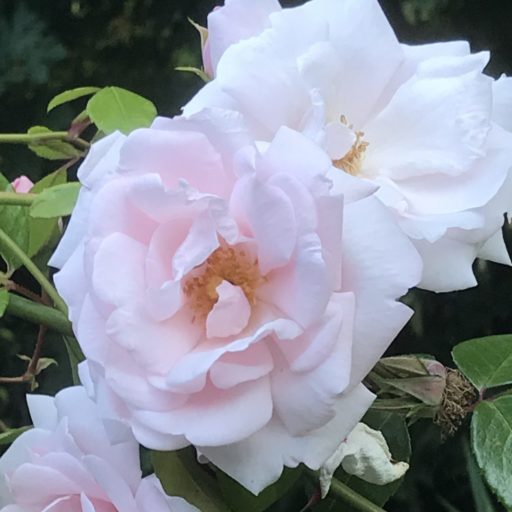Today is “Groundhog Day” Yesterday was St. Brigid’s day/Imbolc. Last week was the celebration of the Lunar New Year. Tomorrow is … a late start at school, (due to the snow we’re getting today and overnight).
I am very glad for the snow, and the spots of rain we are finally getting after a sunnier than-normal and much dryer-than-normal couple of seasons. I am worried for our water supplies, but more for the habitats that depend on the drainage of water and the snowmelt that supplies that water through the rain-less months.
Of course, the lakes and ponds, rivers and streams, and bogland depend on it. So do the little spring frogs, the cattails in the spring and summer, the tall cedars that soak up so much of it, the squirrels that live in the cedars, the rabbits that live under them and the foxes that hunt those. The salmon, being born and dying in the rivers and streams show how to go out and return.
The beautiful Salish Sea, watercourse of legends and modern fascination. The life-giving source of geoducks and smaller clams, of oysters, crabs, octopi, eels, and dozens of types of fish, anemones, sea stars, and countless plants, worms, and other life forms that take a microscope to see. It’s the homeland of Pod J a “resident” population that is declining, that depends on the salmon, who are declining after dams keep them from spawning grounds and warming waters keep the spawning grounds from being as productive as they once were.
The farmers depend on the rain – we on the western side of the Cascade mountains, and those on the eastern side of the mountains who cannot maintain the orchards, grains, and other crops without the nourishing cool waters that flow – not just from the Cascades, but from the Rockies where the Columbia river has its origin. Too much warmth and the snowfields melt too fast. Too little precipitation and the snowfields shrink – and the glaciers…
I just purchased seed potatoes, a couple of transplants for the garden, and hundreds of seeds in about 15 varieties, of foods we love to eat. Things we can plant in the spring that will grow fast and produce early in case we don’t have enough rain to refill the aquifer we draw our water from. Things that will grow fast and produce early in case the sun shines more and hotter than they can tolerate. The wise advice to “plant natives” is good to a point – until the climate changes so much that only the most well-established natives can survive, and only for a short time.
So I am adding in more and more plants that are either adapted for or native to warmer, dryer places. And hoping that the native plants and animals will survive, somehow, in a rapidly changing landscape.
Just as I hope we will survive, somehow, in a rapidly changing world with politics as inhospitable to our kind as it is to the natural life on which we depend.
As we look toward the end of winter, I hope that the omens for a long winter do not include democratic traditions.

Leave a Reply